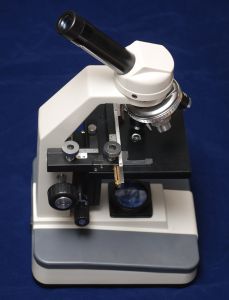
In January 2006 to September of 2008, Christina Adams, had five (5) Pap Smear Tests all evaluated by LabCorp that LabCorp concluded did not show signs of cancer. However, in August, 2009 when Adams presented to her physician with vaginal bleeding it was determined that Adams had cervical cancer. Unfortunately, by the time the cancer was diagnosed, it had already spread to her lymph nodes.
Adams and her husband brought a case against LabCorp accordingly in DeKalb County, Georgia State Court. LabCorp then moved the case to Federal Court
The expert witness that testified for the Plaintiffs at the U.S. District Court level was Dorothy Rosenthal. Rosental reviewed Adames’ pap slides with the same type of microscope and method used by LapCorp known as cythotechnologists. LabCorp filed a Motion for Summary Judgement under the “”Daubert rule,” which is a case known from the U.S. Supreme Court case opinion in Daubert v. Merrill Dow Pharmaceuticals, 509 U.S. 579 (1993), which changed the standards for what is and is not admissible from an expert’s testimony.
The District Court agreed with the Defense and granted the Defenses’ Motion for Summary Judgement stating that the methods of review used by Rosenthal were not sufficient and that she should have used a “blind approach” method when evaluating Adam’s pap smear slides. The blind approach method would mean that Rosenthal would have reviewed slides of both normal and abnormal pap smears not knowing which pap smears she was evaluating and what pap smears were the subject of the litigation.
Adam’s appealed the U.S. District Court grant of the Defenses’ Motion for Summary Judgement to the Georgia Court of Appeals.
The Georgia Court of Appeals, however, stated that Rosenthal used a much accepted methodology in her evaluation and duly noted that the system used by Rosenthal was the same classification system that LabCorp’s cythotechnologists used.
The Court further stated, “As far as we are aware, this is the first time that an industry group has promulgated a set of guidelines that attempts to define and limit the evidence courts should accept when the group’s members are sued,” and that, “The members of the CAP and ASC have a substantial interest in making it more difficult for plaintiffs to sue based on alleged negligence in their Pap smear screening, and their guidelines do just that.”
The Court of Appeals further noted that recommendations based on blinded reviews, and any bias concerns therefrom, could be issues for cross-examination that the jury could later decide, and, in fact, these are exactly the types of concepts that are appropriate for the jury to consider.
The Plaintiff’s are very happy that they are now able to proceed with their cause of action. The case at the Eleventh Circuit is Adams v. Laboratory Corporation of America, No. 13-10425.
This is not the first time that the Court of Appeals has turned down the notion that blind reviews are the only method that can be used and are acceptable in the review of pap smears in litigation involving a cancer diagnosis. For example, in another State Court Case, Lavelle v. Laboratory Corp. of America, the Georgia Court of Appeals ruled similarly as they did in the Adams’ case.
Both these cases illustrate that there are different methods and methodologies for evaluating test results in cases involving cancer, and other, diagnosis’. This does not mean that there is not consistency within the court about the methods that are and are not acceptable. What it does mean is that in some cases there is more than one acceptable method in evaluating a diagnosis, and how the expert proceeds in that evaluation.
It also means that there is some leverage given to the jury to use it’s common sense in determining what methods are and are not acceptable, and do and do not make sense in reaching a particular conclusion in a case.
The good news is that one powerful group can not control how these determinations are made just to suit themselves and put the litigants at a distinct disadvantage.
At Julie A. Rice & Affiliates, Attorney at Law, we are experts at evaluating these types of cases and the methods used by experts in proving cases for our clients, and methods used by the defense as well.
As such, if you or a loved one has been injured or killed due to a misdiagnosis of any condition or nature, then please Contact Us as soon as possible for your free legal consultation so that we may evaluate your case in a timely and efficient manner. We are here to help you in any way that we can, and we look forward to hearing from you soon.